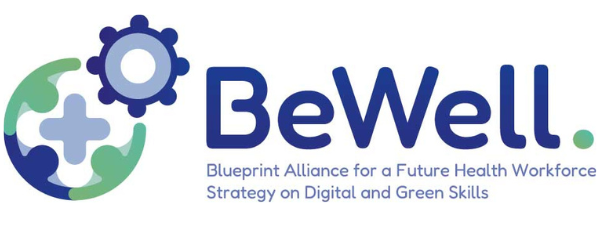The BeWell Skills Strategy aims to guide the digital and green upskilling and reskilling of the health and care workforce across Europe. With over 15 million professionals employed in this sector, the Strategy positions workforce development as essential to the EU’s broader health, economic, and social resilience.
The Strategy wants to offer a roadmap for integrating sustainability, innovation, and system-level alignment into national, regional, and local strategies. It calls for targeted investment, cross-sector collaboration, and policy coherence across health, education, labour, and digital agendas.
The Strategy is built around six objectives, all directly relevant to public planning and policy:
- Assess workforce skill mismatches and improve knowledge transfer through evidence-based planning and monitoring.
- Promote digital literacy, align training with emerging digital roles, and integrate digital health competencies (e.g., AI, e-health, cybersecurity) into national frameworks.
- Advance green competences by embedding sustainability in training and service design - e.g., green procurement, hospital infrastructure, and climate-conscious care delivery.
- Strengthen soft skills, such as communication and problem-solving, to support integrated and multidisciplinary care models.
- Promote workforce wellbeing, using digital and green innovations to improve working conditions and reduce physical and mental health risks.
- Expand access to life-long learning and continuing professional development through inclusive, flexible, and innovative education policies.
At the national level, the Strategy urges ministries and authorities to:
- Prioritise digital and green skilling in national agendas.
- Align this Strategy with health, education, and employment policies.
- Mobilise national and European funding streams to support workforce training and retention.
- Ensure inclusive access to learning, accounting for age, gender, socio-economic status, and regional disparities.
At the regional/local level, public authorities should:
- Adapt and embed the Strategy in operational plans.
- Launch awareness and consultation initiatives with stakeholders in healthcare, education, and employment.
- Identify local skill needs and inform higher-level policy decisions accordingly.
At the European level, coordinated efforts should focus on:
- Funding and regulatory frameworks to support Member States.
- Standards, tools, and collaboration platforms that facilitate implementation.
- Monitoring emerging trends and needs to future-proof workforce planning.
For further information, you can read the full version of the Skills Strategy
here and the summary
here.

